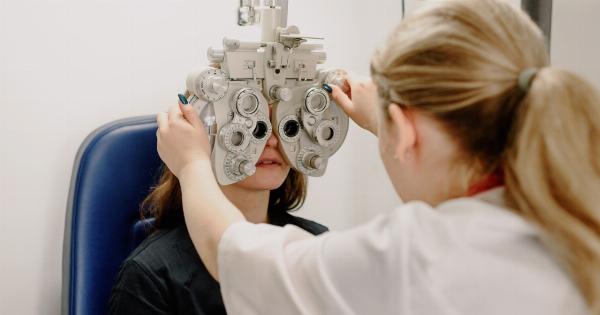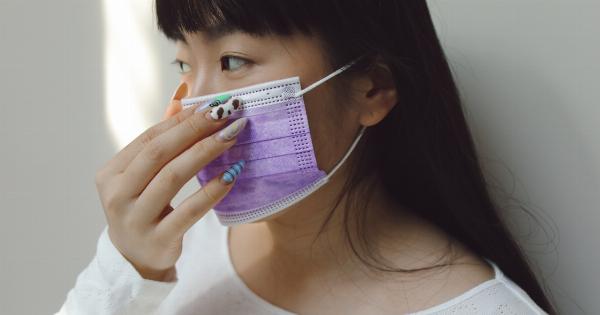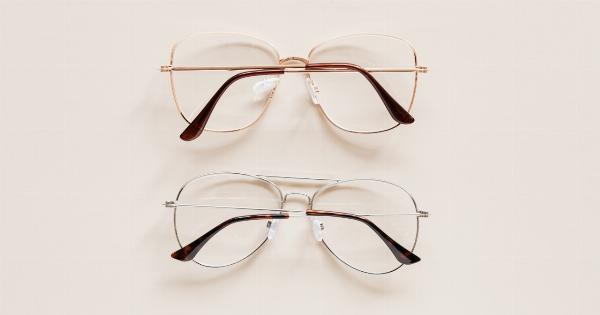Many people rely on contact lenses for clear vision and improved convenience. However, if not properly cared for, contact lenses can cause discomfort and even lead to eye problems.
To ensure a comfortable and healthy contact lens wearing experience, it is vital to follow proper care techniques and adopt good habits when it comes to wearing and maintaining your lenses. In this article, we will discuss some essential tips to help you avoid reaching the breaking point with your contact lenses.
1. Follow Proper Hygiene Practices
One of the most important steps in avoiding contact lens-related issues is maintaining good hygiene. Always wash your hands thoroughly with soap and water before handling your lenses.
Avoid using soaps or moisturizers that contain fragrances or oils as they can transfer to your lenses and cause discomfort. Additionally, dry your hands with a lint-free towel to prevent any fibers from transferring onto your lenses.
2. Choose the Right Contact Lens Solution
Using the appropriate contact lens solution is crucial for keeping your lenses clean and free from debris. Not all contact lens solutions are the same, so it is important to follow the recommendations of your eye care professional.
Avoid using homemade or improvised solutions that are not specifically designed for contact lenses, as they can lead to bacterial infections or lens damage.
3. Replace Your Contact Lens Case Regularly
Your contact lens case can harbor bacteria and other contaminants if not cleaned and replaced regularly. Replace your contact lens case every three months or as recommended by your eye care professional.
After inserting your lenses, rinse your case with fresh solution and let it air dry. Remember to keep the caps of your contact lens case closed when not in use to prevent contamination.
4. Avoid Sleeping in your Contacts
While some contact lenses are specifically designed for extended wear, it is still not recommended to sleep in your lenses. Sleeping in your contacts increases the risk of developing eye infections, corneal ulcers, and other serious complications.
Always follow your eye care professional’s recommendations and remove your lenses before going to bed.
5. Give Your Eyes a Break
Extended contact lens wear can cause dryness and discomfort. To prevent these issues, give your eyes a break from contact lenses every now and then. Consider wearing glasses for a day or two each week to allow your eyes to rest and breathe.
This break will help maintain the natural moisture balance of your eyes.
6. Avoid Water Exposure
Water from swimming pools, hot tubs, showers, and even tap water should never come into contact with your lenses. Water can introduce harmful microorganisms to your eyes, leading to infections, irritation, and potential vision loss.
Remove your lenses before swimming or showering and opt for prescription swimming goggles if needed.
7. Avoid Using Expired Lenses
Contact lenses have an expiration date for a reason. Expired lenses can become damaged, less comfortable, and may put your eyes at risk of infection.
Always check the expiration date on your lens packaging and discard any lenses that have exceeded their recommended usage period.
8. Follow the Recommended Wearing Schedule
It is essential to adhere to the wearing schedule recommended by your eye care professional. Over-wearing your lenses, especially beyond their intended duration, can lead to dryness, redness, and discomfort.
Extended wear lenses are designed to be worn for a specific period, so it is crucial to follow the guidelines provided by your eye care professional.
9. Visit Your Eye Care Professional Regularly
Regular eye exams are crucial for maintaining the health of your eyes, even if you do not wear contact lenses.
Your eye care professional can assess the condition of your eyes, provide guidance on contact lens care, and make any necessary adjustments to ensure optimal vision and comfort with your lenses.
10. Listen to Your Eyes
Your eyes can provide valuable feedback about the comfort and health of your contact lenses. If you experience persistent redness, dryness, itching, or any other discomfort, remove your lenses and consult your eye care professional.
Ignoring symptoms can lead to more severe complications and may require a longer recovery period.
By following these tips and taking proper care of your eyes, you can avoid reaching the breaking point with your contact lenses.
Remember, your eye health should always be a priority, and maintaining good hygiene and proper lens care are the keys to a comfortable and problem-free contact lens wearing experience.




























